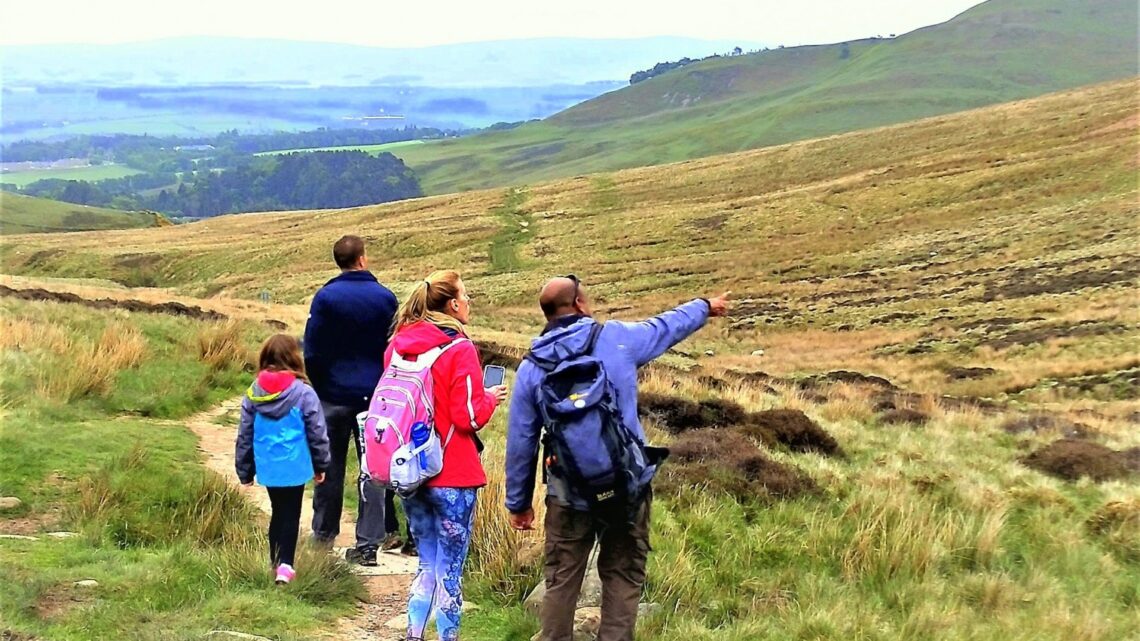
Hiking workouts aren’t just good for your body – they’re good for your mind too
June 10, 2021Before COVID-19, the popularity of hiking was on a downward slope in both adults and children. But its popularity has spiked during the pandemic, seeing many more people taking to trails than usual. Hiking is not only a great way to get outside in nature, it also has plenty of physical and mental health benefits for those who take part.
Hiking differs in many way from taking a regular stroll around your neighbourhood. Not only is the terrain on many hiking routes uneven or rocky, there’s also typically some change in elevation, such as going up or down hills. People also tend to wear different footwear – such as hiking boots – which can be heavier than what they’re used to wearing.
These differences in terrain and footwear mean hiking has a higher energy expenditure (more calories burned) than walking on flat ground does. This is due to the fact that we need to use more muscles to stabilise ourselves when walking on uneven terrain.
While brisk walking at a speed of around 5km/h uses up to four times as much energy as sitting down and resting, hiking through fields and hills uses over five times. This means you can achieve the recommended 150 minutes of moderate to vigorous physical activity without even needing to go for a run or head to the gym.
The benefits of getting enough exercise are clear. Not only will it improve your physical health, sleep and stress management, exercise also reduces your chances of developing certain chronic diseases, such as dementia, type 2 diabetes, cardiovascular disease, depression and certain cancers. In older adults, some research suggests hiking may be able to improve hypertension.
Hiking is also beneficial even for those with pre-existing health conditions. Research shows hiking leads to weight loss and improves cardiovascular health in pre-diabetic adults, likely reducing their risk of getting type 2 diabetes. It’s also been shown to improve other aspects of health, including muscle strength, balance and flexibility in older adults with obesity. Even those who suffer with balance issues or joint problems can hike – as trekking poles may be able to reduce the load on the legs.
The popular form of hiking called Nordic walking – where participants use trekking poles to help them along – is also shown to engage the upper body and increase the intensity of the walking. Research shows this form of hiking increases cardiovascular health, weight loss, and muscle strength in people without any pre-existing health conditions, as well as those with chronic conditions, such as Parkinson’s disease.
A further health benefit of hiking is that it’s classed as “green exercise”. This refers to the added health benefit that doing physical activity in nature has on us. Research shows that not only can green exercise decrease blood pressure, it also benefits mental wellbeing by improving mood and reducing depression to a greater extent than exercising indoors can.
This is why some research suggests healthcare professionals should recommend hiking to patients as a low-cost way of improving health where possible. In England, there’s even an initiative being piloted by the National Health Service to assess the health impacts of green prescribing – where patients are being prescribed outdoor activities – such as hiking or gardening – to improve their mental and physical health.
Get outdoors
Even if you’ve never hiked before, it’s easy to get started. There are plenty of apps you can download on your phone to help you navigate and find routes. These usually work with your GPS and are even easy to follow for those who have a poor sense of direction.
You can also try the 1,000 mile challenge if you want to start hiking. This encourages people to walk 1,000 miles in a year. This has helped many people – including my own parents – to be more active, especially during COVID-19.
If you have a young family (or simply want to make hiking more interesting), a more interactive way of getting out into nature is geocaching. This is where you following a GPS route to a location where someone has hidden a box or trinket of some kind. You can also record what you’ve found using an app. Geocaching is a worldwide phenomenon, so can be done almost anywhere in the world.
Hiking is a great way to get active and improve mental and physical wellbeing. And with many of us still likely to be vacationing locally this year, it can be a great way to get away from home and explore new sights.![]()
This article was originally posted on Hiking workouts aren’t just good for your body – they’re good for your mind too


